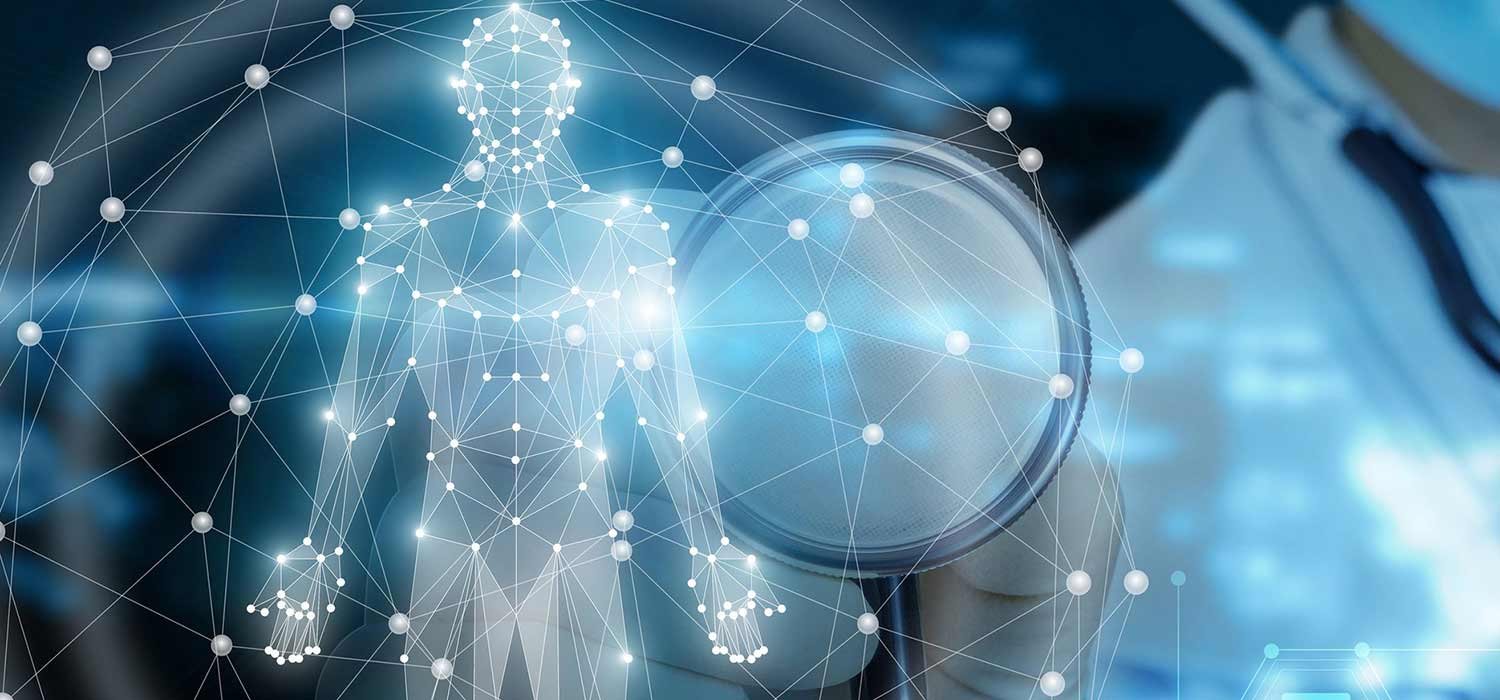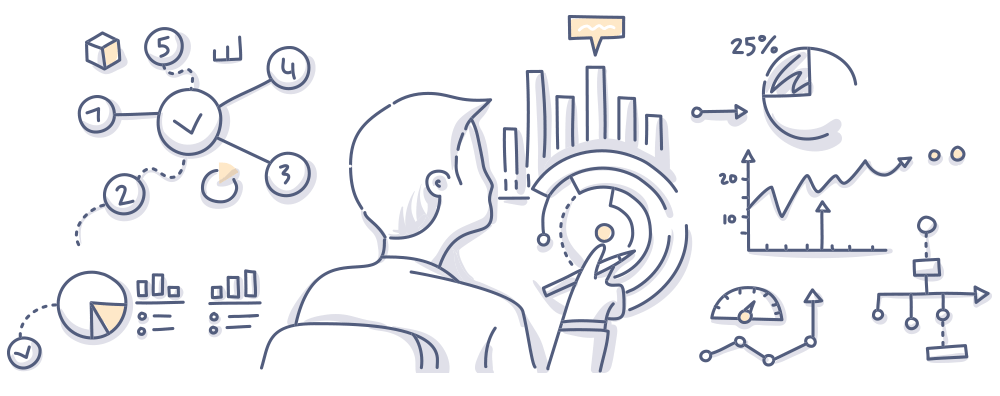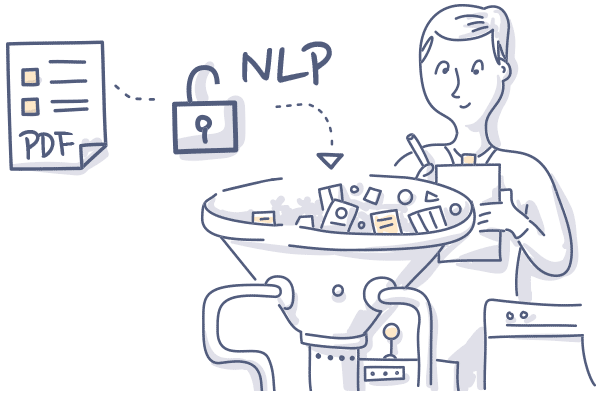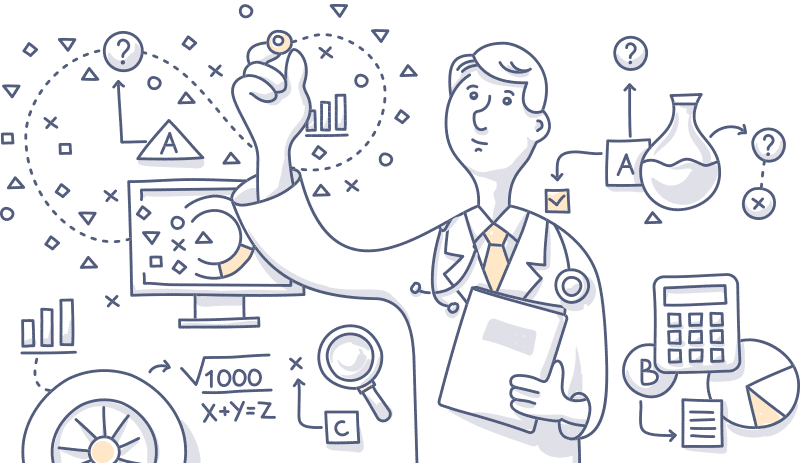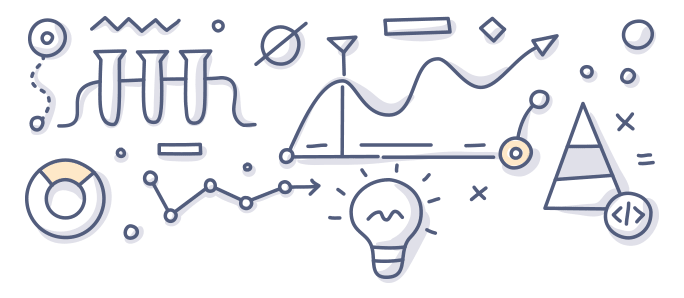AI in Healthcare
The rise of artificial intelligence in healthcare has been revolutionary, completely reshaping how patients are diagnosed, treated, and monitored. The impact of AI in healthcare is evident across every level of the medical ecosystem, from research and clinical documentation to treatment and patient engagement. By delivering more accurate diagnoses and enabling highly personalized treatment plans, artificial intelligence in healthcare is transforming outcomes for patients while streamlining workflows for providers. One of the greatest strengths of AI in healthcare is its ability to analyze vast amounts of clinical data quickly, helping professionals identify disease markers, patient risks, and population health trends that might otherwise be missed.
The applications of artificial intelligence in healthcare are incredibly broad and far-reaching. AI in healthcare is already used to scan radiology images for early detection of cancers and heart disease, predict outcomes using electronic health records, and improve clinical trial design. In parallel, risk adjustment software powered by AI and advanced analytics is transforming how providers and health plans capture disease burden, improve documentation accuracy, and align reimbursement with patient complexity. By embedding artificial intelligence in healthcare into hospital systems, outpatient clinics, home monitoring devices, and risk adjustment workflows, medical providers can deliver smarter, faster, and more financially sustainable care. As a result, AI in healthcare is widely recognized as the future of medicine—enhancing care quality, strengthening documentation integrity, reducing administrative burden, and improving cost efficiency.
The story of artificial intelligence in healthcare began prominently with IBM’s Watson, one of the earliest high-profile AI systems. In 2011, IBM launched a healthcare-specific version of Watson that relied on natural language processing to interpret and analyze medical information. This was one of the first demonstrations of AI in healthcare being used to improve decision-making in real-world settings. Today, IBM has been joined by tech giants such as Apple, Microsoft, and Amazon, all of whom are investing heavily in artificial intelligence in healthcare technologies designed to revolutionize the sector.
The potential of AI in healthcare is nothing short of remarkable. Experts predict that artificial intelligence in healthcare will continue to redefine how we process clinical data, diagnose complex conditions, develop breakthrough treatments, and even prevent diseases before they occur. By using AI in healthcare, physicians and care teams can make better-informed decisions based on accurate, real-time insights—saving time, reducing costs, and improving patient records management. Whether identifying new cancer therapies, monitoring chronic disease progression, or improving the patient experience, artificial intelligence in healthcare stands as a game changer.
Looking ahead, AI in healthcare promises to usher in a new era of precision medicine, where patients receive tailored treatment faster and more accurately than ever before. By embracing artificial intelligence in healthcare, the industry can achieve the dual goals of enhancing patient outcomes while making care delivery more efficient and sustainable for providers. Ultimately, the future of medicine will be defined by how effectively we harness the power of artificial intelligence in healthcare—a future where technology and human expertise combine to deliver unprecedented levels of care.
Let’s take a look at a few of the different types of artificial intelligence and healthcare industry benefits that can be derived from their use.
Machine Learning
Machine learning, a key component of AI used in healthcare, has significantly reshaped healthcare by enhancing medical diagnosis and treatment. By processing vast amounts of clinical data, algorithms can identify patterns and predict medical outcomes with unprecedented accuracy. This technology aids in analyzing patient records, medical imaging, and discovering new therapies, thus helping healthcare professionals improve treatments and reduce costs. Machine learning enables precise disease diagnosis, customized treatments, and detection of subtle changes in vital signs, which might indicate potential health issues. Precision medicine, the most common application, predicts effective treatment procedures based on patient-specific data through supervised learning. Additionally, deep learning, a subset of AI, is used in healthcare for tasks like speech recognition through natural language processing. As deep learning advances, understanding and utilizing it in clinical settings will become increasingly crucial for healthcare professionals. See our page Benefits of Machine Learning in Healthcare for more on the topic.
Natural Language Processing
Natural language processing (NLP) is a form of artificial intelligence that enables computers to interpret and understand human language. In healthcare, NLP is reshaping the industry by allowing technology to extract meaningful insights from vast amounts of clinical data and power more intelligent, automated workflows—capabilities that now sit at the core of many leading risk adjustment solutions for 2026. NLP is being applied across a wide range of healthcare use cases, from improving diagnostic accuracy and streamlining clinical processes to enabling more personalized, data-driven patient care.
For example, NLP can be applied to medical records to accurately identify and validate diagnoses by extracting relevant information from unstructured clinical notes. It can also help surface appropriate treatments and medications for individual patients or predict potential health risks based on historical data. These capabilities are particularly valuable in environments where accuracy, completeness, and efficiency are critical.
In addition, NLP provides clinicians and administrative teams with powerful tools to manage large volumes of complex clinical data—tasks that would otherwise require significant manual effort and time. By automating analysis and highlighting clinically relevant insights, NLP helps reduce cognitive burden while improving consistency and reliability across workflows.
As healthcare continues to evolve toward value-based care and increased regulatory oversight, natural language processing is proving to be an essential technology. Its growing role in modern healthcare systems reflects how AI is enabling more accurate diagnoses, better-informed clinical decisions, and more scalable approaches to managing healthcare data.
Rule-based Expert Systems
Expert systems based on variations of ‘if-then’ rules were the prevalent technology for AI in healthcare in the 80s and later periods. The use of artificial intelligence in healthcare is widely used for clinical decision support to this day. Many electronic health record systems (EHRs) currently make available a set of rules with their software offerings.
Expert systems usually entail human experts and engineers to build an extensive series of rules in a certain knowledge area. They function well up to a point and are easy to follow and process. But as the number of rules grows too large, usually exceeding several thousand, the rules can begin to conflict with each other and fall apart. Also, if the knowledge area changes in a significant way, changing the rules can be burdensome and laborious.
Diagnosis and Treatment Applications
Diagnosis and treatment of disease has been at the core of artificial intelligence AI in healthcare for the last 50 years. Early rule-based systems had potential to accurately diagnose and treat disease, but were not totally accepted for clinical practice. They were not significantly better at diagnosing than humans, and the integration was less than ideal with clinician workflows and health record systems.
But whether rules-based or algorithmic, using artificial intelligence in healthcare for diagnosis and treatment plans can often be difficult to marry with clinical workflows and EHR systems. Integration issues into healthcare organizations has been a greater barrier to widespread adoption of AI in healthcare when compared to the accuracy of suggestions. Much of the AI and healthcare capabilities for diagnosis, treatment and clinical trials from medical software vendors are standalone and address only a certain area of care. Some EHR software vendors are beginning to build limited healthcare analytics functions with AI into their product offerings, but are in the elementary stages. To take full advantage of the use of artificial intelligence in healthcare using a stand alone EHR system providers will either have to undertake substantial integration projects themselves, or leverage the capabilities of third party vendors that have AI capabilities and can integrate with their EHR.
Administrative Applications
Artificial Intelligence in healthcare is changing many of the administrative aspects of medical care. By automating mundane tasks, such as data entry, claims processing and appointment scheduling, using artificial intelligence in healthcare can free up time for providers and healthcare organizations to focus on patient care and revenue cycle management. Furthermore, artificial intelligence also has the potential to reduce human error by providing a faster way to review health records, medical imaging, claims processing and test results. With artificial intelligence giving medical professionals more autonomy over their workflow process, they are able to provide better quality patient care while maintaining budget efficiency. The ability of AI in healthcare to analyze the medical history of a patient and deliver better and faster results is reshaping the way healthcare providers deliver care, making it possible for them to devote more time and resources to their patients. With artificial intelligence AI in healthcare leading the charge in improving patient care, medical professionals can be confident that they can focus on delivering quality care while also saving time and money with AI-powered administrative tasks.
Ultimately, artificial intelligence in healthcare offers a refined way for healthcare providers to deliver better and faster patient care. By automating mundane administrative tasks, artificial intelligence can help medical professionals save time and money while also giving them more autonomy over their workflow process.
Regulatory, Ethical & Adoption Challenges
While many clinicians are optimistic about what artificial intelligence in healthcare can achieve, patient trust often lags behind. Studies show that clear explanations from physicians and nurses improve acceptance, but transparency, strong data governance, and solid evidence of performance remain critical for building confidence. At the same time, concerns about training data, bias, fairness, and model reliability persist. Ensuring that AI systems do not perpetuate inequities is a growing priority, with initiatives like the “2025 Watch List” from Canadian experts highlighting these issues as urgent areas for attention.
Another challenge lies in liability and accountability. As artificial intelligence in healthcare tools take on more decision-support or even semi-autonomous roles, the question of responsibility becomes pressing: who is accountable if an AI-enabled recommendation leads to harm—the clinician, the hospital, or the developer? Regulatory bodies are also stepping up to address these concerns. In the United States, for example, the FDA is formally reviewing digital mental health devices, while new policies are being drafted around generative AI, medical documentation tools, and medical device approvals. Striking the right balance between encouraging innovation and managing risk will be essential to ensure that artificial intelligence in healthcare continues to grow responsibly.
Even when AI tools demonstrate strong potential, widespread implementation remains difficult. Healthcare organizations face challenges in integrating these systems into existing workflows, such as electronic health records, while also training staff, ensuring clinician acceptance, and demonstrating a clear return on investment. Real-world validation is costly but necessary for credibility. Ultimately, the success of artificial intelligence in healthcare will depend on overcoming these barriers—building trust, ensuring fairness, establishing accountability, and navigating regulatory and financial hurdles.
When Did AI Become Popular in Healthcare?
The surge in popularity of healthcare AI marks a transformative era in the medical field. This phenomenon, gaining momentum over the past decade, has seen the role of AI in healthcare emerge as a cornerstone for innovation and efficiency in medical practices worldwide. Understanding when and how AI became so integral requires exploring its applications, benefits, and the groundbreaking examples of healthcare AI.
AI in the medical field began to gain substantial attention in the early 21st century, with significant advancements in technology and data analysis. This period saw a convergence of increased computational power, the availability of large datasets (Big Data), and significant improvements in AI-powered medical algorithms. The real turning point, however, came with the realization of how AI could address some of the most pressing challenges in healthcare, ranging from diagnostic accuracy to personalized treatment and operational efficiency.
According to Statista, the AI in healthcare market—valued at just $11 billion in 2021—is projected to skyrocket to nearly $187 billion by 2030. This explosive growth highlights the accelerating adoption of artificial intelligence in healthcare, signaling major transformations ahead for hospitals, medical providers, pharmaceutical firms, biotechnology companies, and the broader healthcare ecosystem. As investment scales, AI in healthcare is expected to fundamentally reshape clinical workflows, drug development pipelines, and patient care delivery worldwide.
How AI is Reshaping Decision-Making
Many healthcare professionals see the transformative potential of artificial intelligence in healthcare, yet many remain cautious about its clinical use. A 2025 AMA survey found that 66% of physicians are already using health-AI tools—up from 38% in 2023—and 68% believe AI positively contributes to patient care in some way. But concerns are still substantial: many doctors worry about AI influencing diagnosis and treatment decisions, fearing errors, bias, or misuse.
Despite valid concerns, the case for AI in healthcare remains strong: its capacity to enhance patient outcomes demands cautious optimism. Looking at both the strengths and limitations of artificial intelligence in healthcare—and implementing safeguards like oversight, transparency, and data protection—is essential to build trust among clinicians, patients, and healthcare institutions.
The Benefits of AI in Healthcare
How Has AI Impacted the Health Industry?
AI for healthcare offers the ability to process and analyze vast amounts of medical data far beyond human capacity. The benefits of AI in healthcare include faster, more accurate diagnoses, improved treatment recommendations, and data-driven decision-making. This capability has been instrumental in diagnosing diseases, predicting outcomes, and recommending treatments. For instance, AI algorithms can analyze medical images, such as X-rays and MRIs, with greater accuracy and speed than human radiologists, often detecting diseases such as cancer at earlier stages.
Examples of artificial intelligence in healthcare are diverse and impactful. A significant development besides IBM’s Watson Health was Google's DeepMind Health project, which demonstrated the ability to diagnose eye diseases from retinal scans with a level of accuracy comparable to human experts. These pioneering projects showcased the benefits of AI in healthcare, particularly in revolutionizing diagnostics and personalized medicine.
Another area where AI used in healthcare has made a significant impact is in predictive analytics. Healthcare AI systems can analyze patterns in a patient's medical history and current health data to predict potential health risks. The benefits of AI in healthcare extend to proactive and preventative care, enabling providers to intervene earlier and reduce costly hospitalizations. This predictive capability empowers healthcare organizations to improve patient outcomes and reduce overall healthcare costs.
AI also streamlines various processes within healthcare facilities. From scheduling appointments to processing insurance claims, AI automation reduces administrative burdens, allowing healthcare providers to focus more on patient care. This not only improves operational efficiency but also enhances the overall patient experience—another example of the growing benefits of AI in healthcare.
The rise of AI in healthcare has been a gradual but steady journey, catalyzed by technological advancements and the increasing demand for improved healthcare delivery. The integration of AI into the medical field has brought about a paradigm shift, making healthcare more efficient, accurate, and personalized. As AI technology continues to evolve, its role in healthcare is set to become even more significant, further solidifying its status as an indispensable tool in modern medicine. This journey from a novel concept to a core healthcare asset perfectly illustrates the benefits of AI in healthcare and its promise of better health outcomes for all.
Recent Advances of AI in Healthcare
One of the most exciting areas of progress for artificial intelligence in healthcare is drug discovery. Companies like DeepMind, mentioned above, are pushing the frontier by dramatically shortening the time it takes to identify promising drug candidates. What once took years of research may soon take only months, with AI models accelerating the process of narrowing down compounds for further testing. Beyond research, AI in healthcare is already making a major impact on early disease detection and diagnostics. A new AI-powered stethoscope developed at Imperial College London can detect heart failure, valve disease, and irregular rhythms in just 15 seconds by combining ECG signals with heart sound analysis. In the UK, tools such as Osiris AI—developed in collaboration with Microsoft—are being deployed in radiation oncology to streamline treatment planning. These advances highlight how artificial intelligence in healthcare is moving beyond experimentation and into real-world clinical applications.
Another area of rapid adoption is clinical documentation and administrative efficiency. Tools like Heidi Health are being used to automate medical note-taking, transcription, and structuring, saving valuable time for physicians. Microsoft has also launched Dragon Copilot, an AI assistant designed to reduce administrative burdens by drafting referral letters, after-visit summaries, and evidence-based clinical notes. This reflects a growing emphasis on using artificial intelligence in healthcare not only for diagnosis and treatment, but also for non-clinical support tasks that improve efficiency and reduce burnout.
The mental health field is also seeing innovation. A surge of AI-enabled tools—ranging from chatbots to virtual therapists—are entering the market. Recognizing the need for oversight, the U.S. FDA is preparing to evaluate these devices through its Digital Health Advisory Committee to weigh both their benefits and risks. Meanwhile, artificial intelligence in healthcare is being scaled to population-level applications. In India, the state of Telangana is piloting AI-based cancer screenings (oral, breast, cervical) to address radiologist shortages and improve early detection. In the UK, researchers are leveraging health datasets to develop AI models capable of predicting the onset of diseases such as Alzheimer’s and kidney disease years before symptoms emerge.
Finally, cutting-edge academic work is expanding the boundaries of AI in healthcare through innovative approaches like reinforcement learning, which focuses on recommending long-term interventions rather than simply predicting outcomes. Other research explores embodied AI systems—robots, multisensory platforms, and human-AI teams in diagnostics and pathology—demonstrating that the role of artificial intelligence in healthcare is not confined to software tools but is expanding into interactive, agentive systems. Collectively, these advances show that AI is rapidly becoming embedded across the entire healthcare spectrum, from research labs and clinics to population health programs and mental health services.
Emerging Trends & What to Watch Next
The future of artificial intelligence in healthcare is poised to bring even greater impact, particularly in diagnosis and screening. We can expect further deployment of AI-powered tools—such as imaging systems, ECG analysis, and smart stethoscopes—along with expanded screening programs, especially in regions with limited medical resources. Early disease detection remains one of the most significant opportunities where AI in healthcare can deliver measurable value. At the same time, autonomous and semi-autonomous systems are on the horizon. Human-AI teaming, delegated autonomy, and reinforcement learning approaches will become more common, provided they are deployed safely and with strong regulatory oversight. Generative AI is also emerging as a powerful force in healthcare, supporting summarization, decision support, medical education, and even generating patient-facing content. However, concerns about accuracy, hallucinations, and safety will ensure close scrutiny.
Another critical focus will be on scaling and access. As adoption increases, efforts must be made to bring artificial intelligence in healthcare to rural and underserved communities, ensuring that its benefits are not limited to high-income countries or large health systems. Finally, regulatory frameworks will need to evolve alongside innovation. As artificial intelligence in healthcare becomes more powerful and pervasive, policymakers will need to formalize guidelines around data privacy, liability, validation, bias, and transparency to protect patients while fostering innovation.
With new AI technology in healthcare, tools like ForeSee Medical and intelligent algorithms now possess the ability to interpret massive datasets at unprecedented speeds. Advanced deep learning systems can detect diseases earlier, craft individualized treatment strategies, and even automate complex tasks, such as certain aspects of drug discovery. These leaps forward can improve patient safety, reduce operational costs, and elevate the overall standard of care.
The promise of AI in healthcare extends into the future, where connected digital ecosystems and powerful analytics engines will reshape our understanding of health and disease. However, the primary challenge is not AI’s inherent capability to excel, but rather the integration of these tools into everyday clinical practice. As providers adapt, roles in medicine may shift to emphasize the uniquely human talents of empathy, complex reasoning, and nuanced judgment. Those who embrace AI will likely reap the greatest rewards, as new generations of clinicians and patients alike benefit from improved outcomes, heightened efficiency, and better overall experiences.
In short, AI in healthcare holds tremendous potential, with emerging technologies heralding a new era of medical innovation. Through careful adoption, robust evidence generation, ethical oversight, and ongoing education, we can fully harness AI’s transformative power to improve lives, streamline clinical workflows, and usher in a future defined by patient-centered, data-driven healthcare.
Are you looking to extract actionable insights from your data using the latest artificial intelligence technology? See how ForeSee Medical can empower you with insightful HCC risk adjustment coding support and integrate it seamlessly with your electronic health records.
By Steve Barth, Marketing Director
Sources:
Çiçek, V., et al. (2025). Position of artificial intelligence in healthcare and future directions. Artificial Intelligence in Medicine. Retrieved from https://www.sciencedirect.com/science/article/abs/pii/S0933365725001289
Nature Editorial. (2025). Synthetic data can benefit medical research — but risks must be recognized. Nature. Retrieved from https://www.nature.com/articles/d41586-025-02869-0
Adler-Milstein, J., et al. (2025). Survey of AI adoption in U.S. health systems. JAMA Network Open. Retrieved from https://pmc.ncbi.nlm.nih.gov/articles/PMC12202002/
Hassabis, D. (2025, September). DeepMind CEO: AI could cut drug discovery from years to months — how it is changing medicine worldwide. Times of India. Retrieved from https://timesofindia.indiatimes.com/technology/tech-news/deepmind-ceo-demis-hassabis-ai-could-cut-drug-discovery-from-years-to-how-it-is-changing-medicine-worldwide/articleshow/123846367.cms
Cookson, C. (2025, August). How AI is helping one doctor treat cancer: “It’s moved out of the hype phase.” Financial Times. Retrieved from https://www.ft.com/content/fcc33754-d583-4302-aaff-de9c09783706
Boseley, S. (2025, August 30). Doctors develop AI stethoscope that can detect major heart conditions in 15 seconds. The Guardian. Retrieved from https://www.theguardian.com/technology/2025/aug/30/doctors-ai-stethoscope-heart-disease-london
Adelaide Now. (2025). SA health system testing AI to help doctors and cut waiting lists. Retrieved from https://www.adelaidenow.com.au/news/south-australia/state-election/sa-health-system-testing-ai-to-help-doctors-and-cut-waiting-lists/news-story/440eaf27c40e9fff239bbc8502c800da

